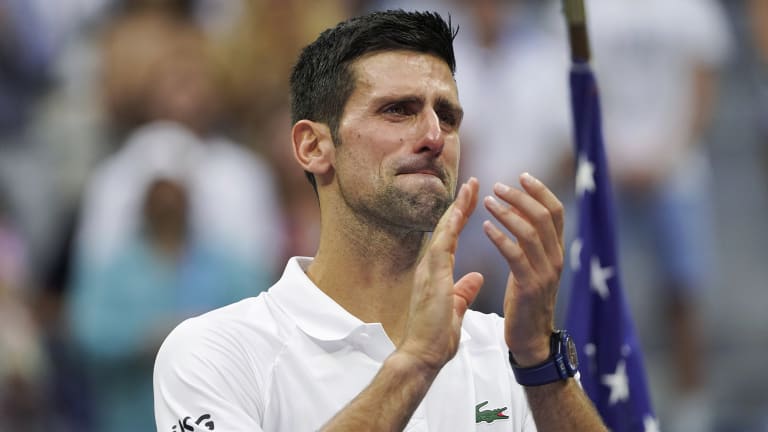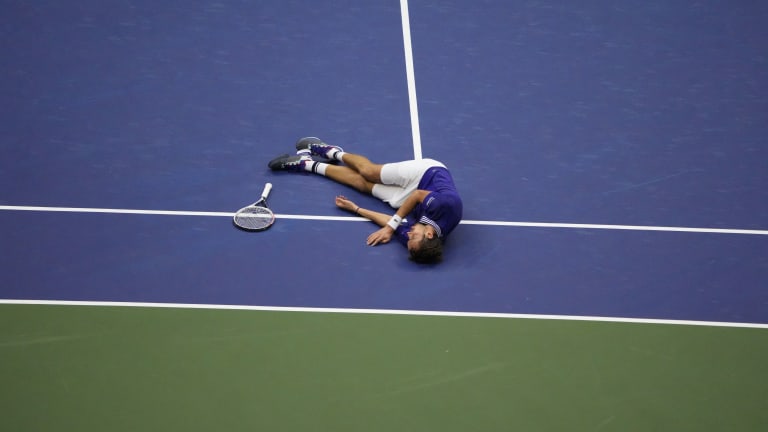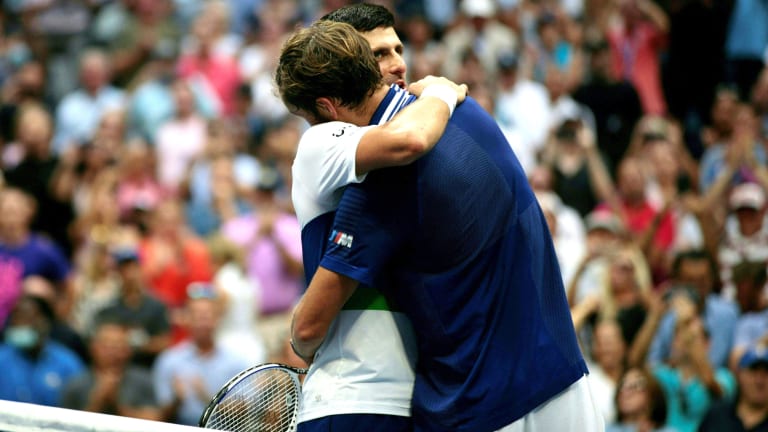There were two stories to this match: The contest between Medvedev and Djokovic, and the evolving relationship between Djokovic and the US Open crowd.
In his first-round match, the fans had rooted hard for his little-known opponent, Holger Rune. But the tide began to turn during Djokovic’s hard-fought win over Matteo Berrettini in the quarterfinals, when he demanded a reaction from the audience; they responded with a roar. By the final, the audience in Arthur Ashe Stadium was behind him in a way that it had never had been in 16 previous appearances. They stood for him, they chanted his name, they did everything they could to lift him up. Finally, one game from losing, Djokovic cried on the final changeover, and he misted up again during the trophy presentation.
“I felt something I never felt in my life here in New York,” he said. “The crowd made me very special. They pleasantly surprised me. I did not know, I did not expect anything, but the amount of support and energy and love I got from the crowd was something that I’ll remember forever.
“I mean, that’s the reason on the changeover I just teared up. The emotion, the energy was so strong. I mean, it’s as strong as winning 21 Grand Slams. That’s how I felt, honestly. I felt very, very special.
“They touched my heart, honestly.”
Djokovic may be the greatest tennis player of all time, but he has never been the most popular. His detractors say part of the reason is that he wants to be loved too much. But is there anyone who doesn’t want to be loved, who doesn’t want the fans to cheer for him instead of the other player, all the time? In the US Open final, we saw what that love meant to Djokovic. He lost the biggest match of his career, even as he was winning over the biggest audience of his life.



